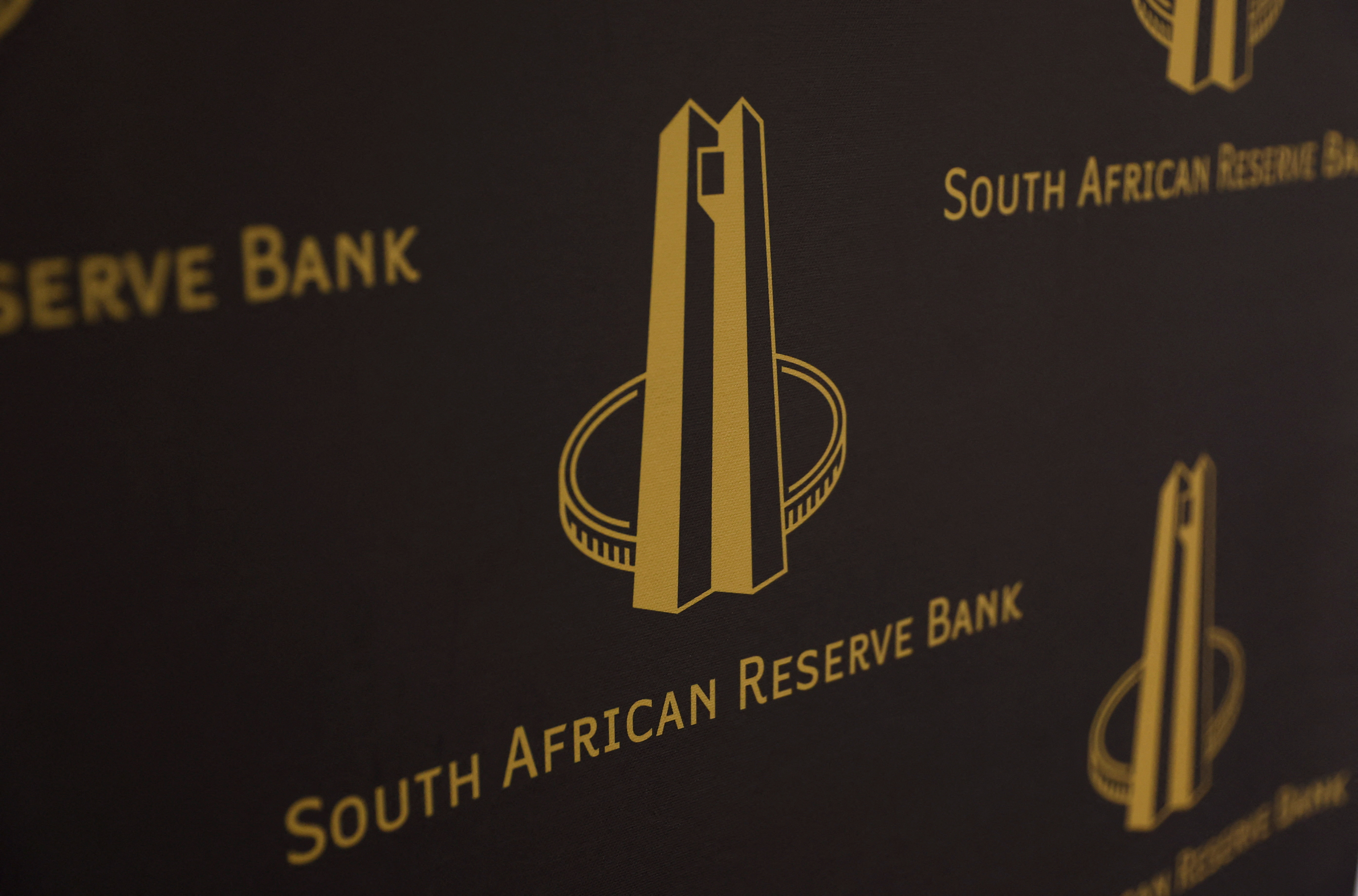[ad_1]

The logo of South Africa’s central reserve bank is seen during the delivery of a keynote address by South Africa’s central bank governor, Lesetja Kganyago, at the University of the Witwatersrand in Johannesburg, South Africa, November 1, 2022. REUTERS/Siphiwe Sibeko/File Photo Acquire Licensing Rights
PRETORIA, Nov 23 (Reuters) – South Africa’s central bank stuck to its previous hawkish tone on Thursday as it kept its main lending rate unchanged for the third meeting in a row and emphasised that logistics bottlenecks were denting the growth outlook.
The unanimous decision to keep the repo rate at 8.25% (ZAREPO=ECI) was in line with all the forecasts in a Reuters poll of economists published last week.
Africa’s most industrialised nation has eked out only sluggish economic growth in the past decade, with rolling power cuts by state utility Eskom and problems at port and freight rail company Transnet restricting business activity in sectors from mining to agriculture.
“The operation of ports and rail … have become a serious constraint,” South African Reserve Bank (SARB) Governor Lesetja Kganyago told a news conference.
Inflation rose sharply to 5.9% year-on-year in October from 5.4% in September, approaching the upper end of the central bank’s target range of 3%-6%.
“The uptick in inflation is unwelcome,” said Kganyago, referring to October’s data.
He added that despite the monthly rise, the bank still expected inflation to fall to within its target band by 2025.
He would not give any indication as to when to expect interest rate cuts.
Many analysts see the first rate cut in early 2024, but some have warned the SARB might delay its easing cycle beyond that.
“The SARB is clearly in no rush to join the emerging market rate-cutting club,” said Jason Tuvey, deputy chief emerging markets economist at Capital Economics.
Elize Kruger, an independent South Africa-based economist, said the SARB may now have reached the end of its hiking cycle and that the next move could be a cut.
Before the last three “hold” decisions, the SARB had raised rates 10 times consecutively starting in November 2021.
Reporting by Kopano Gumbi, Anait Miridzhanian and Tannur Anders;
Writing by Bhargav Acharya,
editing by Alexander Winning and Emelia Sithole-Matarise
Our Standards: The Thomson Reuters Trust Principles.
[ad_2]
Source link
